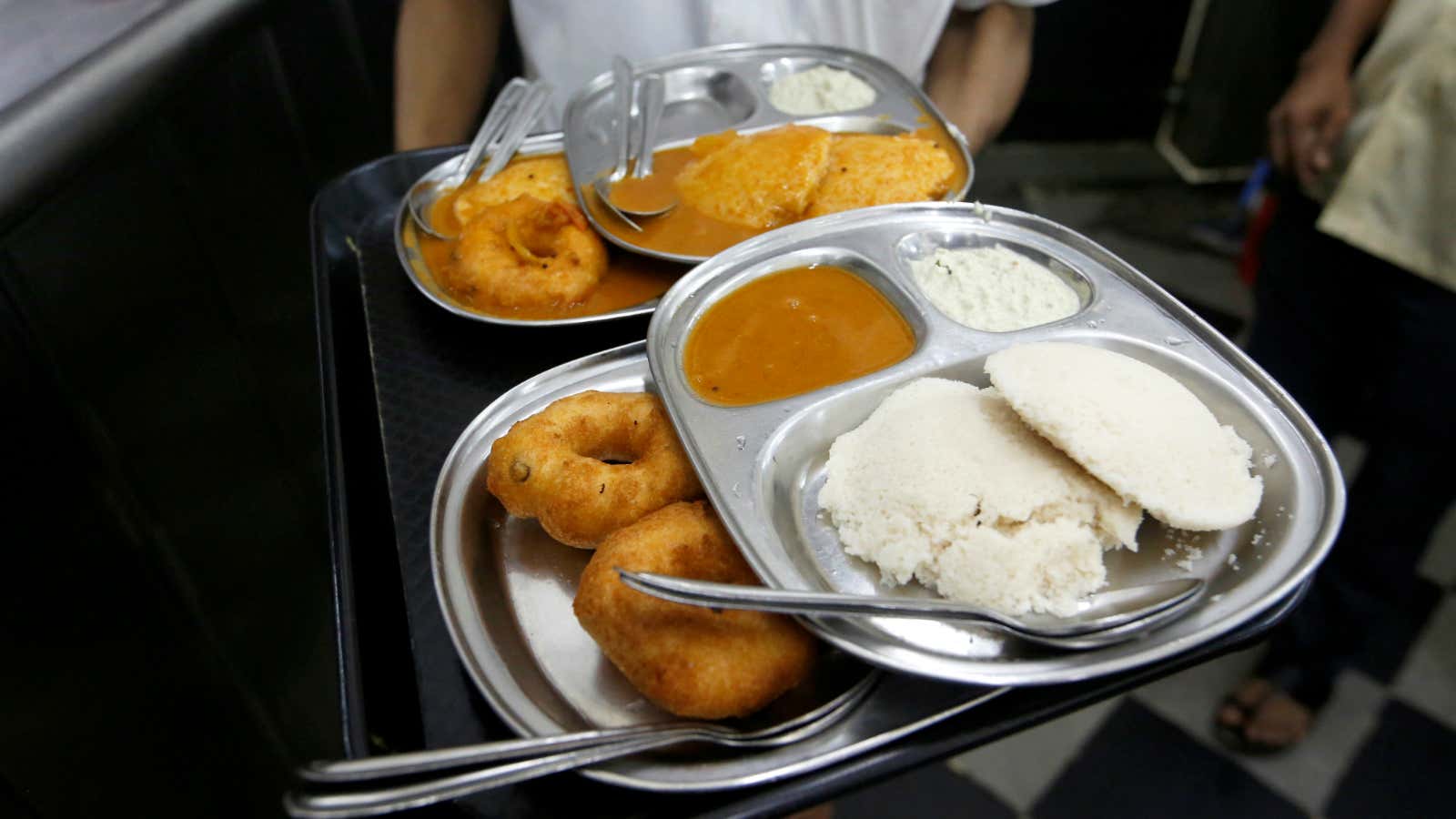Just as it was hitting its stride after years of turbulence, India’s food-delivery industry has run into another hurdle.
On Aug. 02, the Food Safety and Standards Authority of India (FSSAI) said the licences and registrations of up to 40% of the restaurants listed by online food delivery platforms were not verified despite instructions to do so.
Over the past few months, food aggregators in the country have been in a soup over hygiene. While they do not own or operate restaurants, they are facing increasing criticism for listing sub-par establishments.
In July, following a series of complaints of low-quality food being delivered, FSSAI had asked 10 food delivery companies, including Swiggy, Zomato, Uber Eats, Foodpanda, and Lime Tray, to delist unlicensed restaurants by July 31.
“(We appeal to) aggregators to begin to use some of their resources in training and capacity building of restaurants for improving food safety and hygiene rather than focusing only on deep discounts and aggressive marketing to build consumer traction to their respective platforms,” Pawan Agarwal, CEO of FSSAI, said in a statement on Aug. 02.
The FSSAI will continue to run audits on food delivery apps to ensure compliances for safety and hygiene, the authority said.
The scrutiny from the regulator has come at a time when the food delivery industry in India has started reviving from a funding crunch that led to several casualties.
Delivering food
When food aggregators first emerged in the country, they received quite a response from investors.
And although companies like Swiggy and Zomato got big backers early on, the enthusiasm dipped towards the end of 2015. This led to a clutch of startups either shutting shop or downsizing significantly. By 2016, funding dropped to less than $80 million compared to the $500 million that was poured into the sector the year before.
In 2017, however, the industry saw an uptick in demand and investment activity. Standing at $700 million in market size today, food delivery services are expected to hit at least $2.5 billion by 2021.
So far, the sector has had a mostly unregulated run in the country. For instance, Swiggy’s terms and conditions state that “all liability that may arise due to any violation of the FSSAI Act, 2006, and applicable rules and regulations made there under and such liability shall be attributable to the merchant.”
Analysts, therefore, believe the regulator’s move is in the right direction.
“I don’t see this as an overreach on the behalf of the regulator since it is done for the larger benefit of food safety in India,” said Yugal Joshi, vice-president at consulting and research firm Everest Group. “Going forward, all aggregators (across all sectors) will need some form of a regulation or watchdog so they cannot just wash their hands of everything,” he added.
Following FSSAI’s move, some companies have begun taking corrective measures.
“We’re working with various stakeholders in the industry, including the FSSAI,” a Zomato spokesperson told Quartz over mail. “…In this regard, we launched hygiene rating services for restaurants in late 2017 and have already conducted audits at more than 2,000 restaurants in India…our core reviews and rating platform help users get a voice and have democratised the quality audit of food being served by a restaurant.”
Swiggy, on the other hand, said it is working to set up support systems to adhere to FSSAI’s demands.
“Swiggy is closely working with FSSAI towards ensuring the directions are adhered to and that there is an action plan for compliance of all our restaurant partners,” a company spokesperson said. “In this regard, we are working with reputed third-party agencies to set up a support system and help expedite this process for them.”
